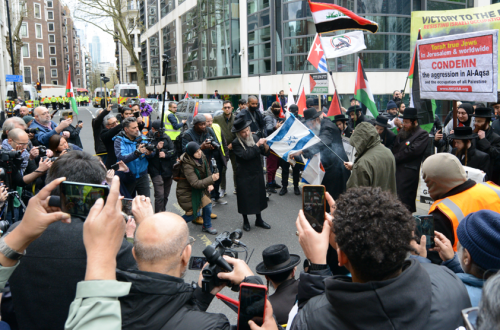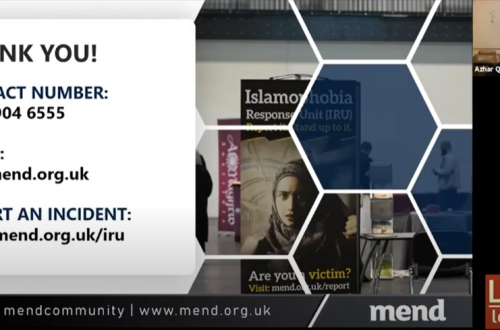This is a guest post by Mehrdad Amanpour
I obtained my British passport when I was 16 and only after I had lived in the UK for most of my life.
I remember it was a rigorous process. The final stage involved my swearing the citizenship oath of allegiance and pledge in front of a magistrate. At the time, I was a creature of the far left with a congruous anti-royal bent. I told the magistrate I objected to “I will be faithful and bear true allegiance to Her Majesty Queen Elizabeth the Second, Her Heirs and Successors”.
The magistrate explained that in this context, my oath was to the UK’s Head of State, so I need not worry about any ideological opposition to monarchy.
I thought carefully for a minute, then took the oath. And meant it.
I do wonder how many of the millions of foreign nationals who have obtained British citizenship in the last couple of decades thought about the oath they took. Were sincere when they took it. How many felt as proud and privileged to become a British citizen as I did all those years ago.
The problem is we can’t know. When the numbers are so high and when the bar has been so low for so many years, we simply can’t know.
It’s important to acknowledge that Trump’s ‘Muslim ban’ is not a ban on Muslims – it’s an arbitrary 90-day ban on citizens of seven Muslim-majority countries.
It may come as a surprise to those protesting this development, but for many like me, it’s nothing new. The days when, as a British passport holder, I went to the US by simply completing an online ESTA form like my fellow British citizens ended last year, when Obama was still sitting in the President’s chair.
It was his administration that implemented new rules in 2016 exempting dual-nationals from Iran, Iraq, Syria or Sudan from travelling to the US without obtaining a visa first – an onerous process involving a rigorous face-to-face interview at the US embassy.
Note to the protestors – does that not sound like ‘extreme vetting’? It certainly felt like it to me.
Trump has simply added Libya, Somalia and Yemen to that list of ‘pariah’ states and turned a discriminatory process into a more discriminatory 90 day ban whilst his version of ‘extreme vetting’ is formulated
The generally appropriate response to this type of situation nowadays is to be angry. I ought to be writing a piece on profiling, racism or Islamophobia. One would expect my twitter feed to be filled with howls of victimhood, blame and outraged anti-Americanism.
Naturally, I feel saddened. And inconvenienced – many of my relatives live in the US. But my main emotion is worry. Worry about the competence of Trump’s administration in formulating an intelligent or even workable ‘extreme vetting’ process. Certainly, his choice of ‘pariah’ states is muddled and cowardly – I’d imagine there’s much more chance of a citizen of Saudi Arabia engaging in a terrorist act than some of the countries on his enhanced ‘pariah’ list. Most of all, I’m concerned that Trump and his team are dangerously ignorant of the difference between a secular-democracy supporting ‘Muslim’ and an ‘Islamist’ – ie someone who believes that their interpretation of Islam ought ultimately to be imposed on society as a political and legal system through violent or non-violent means.
But angered? Outraged? No. For naturalised foreigners, the value of our British passports was already eroded. And our Home Office is to blame thanks to its ideologically-driven enthusiasm for dishing out British citizenship without the due care and consideration that such a significant act warrants.
I retain my anger and outrage for those who have caused Iran to deserve its ‘pariah’ label.
It sponsors terrorism throughout the world. It funds & promotes an extremist version of Shia Islamism throughout Europe and the Middle East. It is extremely hostile to the USA. It openly seeks its destruction.
Even if one made the absurd argument that Iran does none of the above, the fact is that the USA, as a sovereign state, has determined it is a threat.
And I am after all an Iranian citizen. It is my choice to be (albeit through necessity: As someone considered ‘Iranian’ under Iranian law, I cannot travel to Iran with my British passport).
To be outraged at my predicament would be to pretend that the concept of the nation state, within secured and controlled borders, that has existed for centuries in the West and many other parts of the world, is somehow no longer valid. Or else, pretend it never really existed – a delusion that seems to have afflicted a vocal and powerful minority in the last decade or so.
I believe many of the alarming events we see today, such as Trump, Le Pen, Wilders and the ‘mainstreaming’ of far-right politics comes from the disconnect between that minority and the overwhelming majority of the citizens of nation states who feel uncomfortable with the notion that their nations and borders are no longer valid. That their right to security, self-determination and identity are being eroded, against their wishes.
Setting all emotion aside, I can see no logical reason for the US, nor any other foreign country for that matter, to disregard my Iranian nationality and treat me as a British citizen, based upon nothing else but my say-so. Yet exactly that type of thinking has become the accepted wisdom in recent years.
Consider this: In only 13 years, from 2000, the UK issued 2 million passports to to non-UK citizens.
Forget ‘extreme vetting, there wasn’t even ‘minimal vetting’ – in most of the above cases, British citizenship was awarded with hardly any checks. For decades, it was extremely rare for any applicant to be interviewed during the naturalisation process – there wasn’t even a facility to conduct interviews. Predictably, this resulted in a fair few undesirable people being granted British citizenship. [Source.]
It seems absurd that conducting due diligence before granting citizenship to foreign nationals is considered ‘racist’ by some. It seems recklessly naive to disregard the possibility that the person you’re making a ‘citizen’ of your country hates you and your liberal, secular and democratic system. Such people may only make up a small minority of naturalised people, but it’s just so damned foolhardy.
I have no doubt that undesirable naturalised immigrants, Iranian or otherwise are rare. But they doubtless do exist and it’s possible to find them them, as I have, chanting “Margh bar Amrika” (Death to America) in London, on Al Quds day.
So, with a UK immigration system that has so devalued British citizenship for naturalised citizens, how is ‘U.S. Customs and Border Protection’ to know that I am not like those ‘British citizens’ who call for its death in London? How can it be sure I am not a supporter of the Iranian regime? How can it be certain that I do not hate its country and wish to do it harm?
Clearly, the fact that I hold a British passport no longer provides the reassurance it once did.
And what is U.S. Customs and Border Protection’s primary obligation? To protect the American public or avoid offending and inconveniencing the nationals of states that quite openly wish to do it harm?
I don’t object to being asked to confirm that I do not support totalitarian or fascistic political ideologies. I don’t object to being vetted to ascertain I do not hate a country or its system before I’m allowed into it. Heck, as an Iranian passport holder, I don’t object to being subjected to ‘extreme vetting’. But I I have little doubt that Trump’s ‘solutions’ will be brutally simplistic, ineffective and the thin end of a very tall wedge.
For many years, I’ve feared and warned that the ‘global-citizen’ experiment that the West has been conducting and that has failed so spectacularly will result in an over-correction that swings too far in the wrong direction.
And with every passing week it seems, my long-held fears are vindicated.


